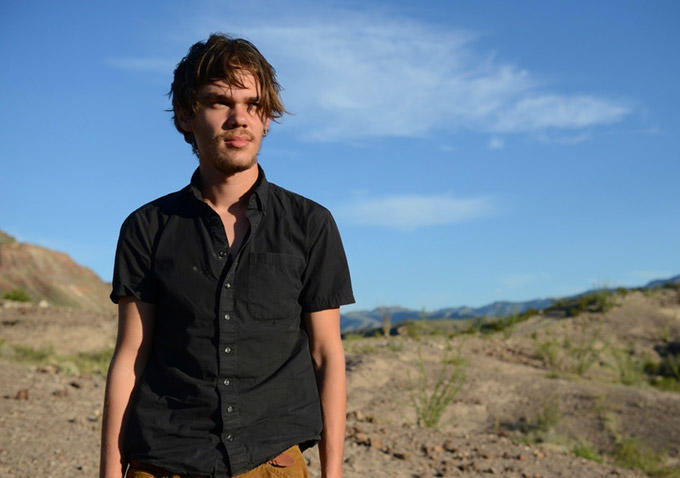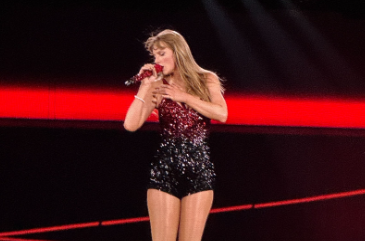‘Boyhood’ Review: Growing Up Already?
“Do you ever think they will make another Star Wars movie?” asks Mason. The year is 2008 and Mason and his father, Mason Sr., are sitting around a campfire in the heart of Texas. Mason says there can’t possibly be another movie; the father agrees. “Return of the Jedi-it’s over,” Mason Sr. says, and the movie, Boyhood, shifts.
We know now, of course, that there will be another Star Wars, and possibly many, many more. But Mason and his father really were in the dark. Shot over 12 years, a little bit each summer, by director Richard Linklater, Boyhood is a coming-of-age story like no other, following Mason (played in real-time by Ellar Coltrane) as he grows from a video-game obsessed child to a college-bound man.
Britney Spears. The Iraq War. Harry Potter. Obama. Skype. The subtle evolutions of America are woven into the fabric of Boyhood, but the heart of this film is firmly stored in its characters. Mason’s mother, Olivia (Patricia Arquette) struggles to pay the bills and divorces a few husbands. Mason’s sister, Samantha (Lorelei Linklater) forgets to pick up Mason and leaves for college in Austin. Mason Sr. (Ethan Hawke) gets re-married and has another child. These are plot details, not spoilers, and it’s a tribute to Boyhood that a movie could have been made about every single one of these characters.
For multiple reasons, Linklater chose Mason for this story; beyond just its name, Boyhood reflects this decision. In the last decade, America has had a collective freak-out over the future of our young men; they are underperforming in schools, failing to find jobs, and unleashing horrific violence. If you listen closely to one scene in Boyhood, you can even hear, playing in the background, Arcade Fire’s “Suburban War”, a song that foresees the destruction of the suburbs, where Boyhood takes place, and the American adolescent. In contrast, Linklater calmly defends American boyhood by precisely showing, year by year, the development of a perfectly functioning middle-class male. In a mark of his prowess, Linklater doesn’t try to force Mason into engaging in intellectual or political fights; like the teen it portrays, Boyhood is too busy surviving the day-to-day of life to proclaim any weighty ideological statements.
Undoubtedly though, Linklater’s Boyhood is full of artistic statements. In a year of half-baked super-sized films such as Transformers: Age of Extinction that obliterate ears and planets, it seems a minor miracle that Linklater (and Hollywood) have been able to provide an alternative. When Mason checks his phone on a drive to Austin towards the end of the movie, we are trained by Hollywood to expect another car to slam into his. However, in Linklater’s films, which include the Before trilogy, School of Rock and Dazed and Confused, no mistake is ever truly fatal, and Mason arrives safely at his destination.
Boyhood strikes a hopeful tone not just because it subverts Checkhov’s gun, but because the movie displays such a profound respect for the creation of art. In a movie that has been compared to a book, Linklater adds numerous scenes of drawing and singing, which, along with an interesting, diverse soundtrack, bring the film’s 165 minutes to additional motion.
Like everything else in Boyhood, Linklater’s artistic ambitions find their way home to Mason’s own story. Asked what he wants to do with his life, Mason replies, “I want to make art.” Slowly and surely, we watch Mason fall in love with photography, snapping pictures of his girlfriend, Sheena, and high school football games. We will never know whether Mason has what it takes to be a professional photographer; the film ends just as Mason is beginning college.
When the lights came back on and the credits rolled, I realized that, throughout Boyhood, I had never once anticipated the ending. There isn’t a single death in the movie, but when Boyhood’s run time finished up, it sure felt like a death in my own family. I wanted Boyhood to go on and on, for Mason’s entire life to unspool before me. Like the best of art, Boyhood leaves you both grateful for what you have experienced and wanting much more. Months after my initial viewing of Boyhood, I still can’t imagine ever letting this beautiful film go.
Boyhood is rated R for language including sexual references, and for teen drug and alcohol use. The film is available for purchase at Amazon, Google Play, and elsewhere online.




